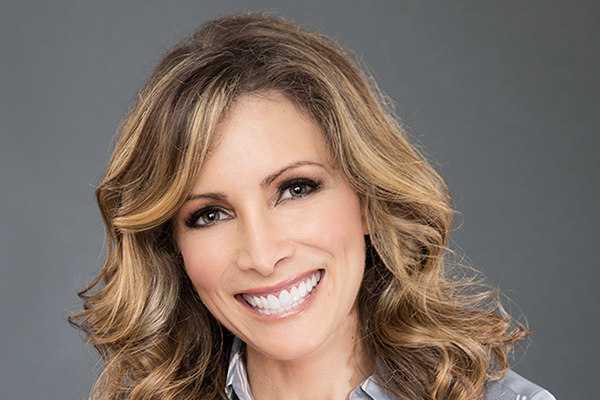Seven-Time Olympic Medalist & Ovarian Cancer Survivor Shannon Miller
by Ashley Hubbard
COPING: What has it been like celebrating two incredible, but very different, milestones – 10 years cancer-free and the 25th anniversary of winning Olympic gold in gymnastics?
SHANNON MILLER: The two milestones are quite interesting in that they really highlight two of the major moments in my life that were at completely separate ends of the spectrum, physically. During the Olympics, I was in the best shape of my life. During my cancer treatment, a great day was getting dressed and walking twice around the dining room table. Yet, the mental aspect was very similar for both. I relied on lessons learned through sport: goal setting, teamwork, positive mental attitude, and resiliency. I think that’s what continues to inspire me to use my voice, gained through gymnastics, to inspire others to keep up the good fight. We don’t have to be an Olympic champion to utilize those valuable lessons.
How do you see things differently compared to 10 years ago?
I am so grateful to so many who helped me get to this point. It really does take a team. I think there are many lessons that I’ve continued to try and focus on. One is to live each day to its fullest, or live in the present and appreciate all that today brings. Another is to continue to make my health a priority. That’s something I really have to focus on because, like everyone else, it’s easy to get sidetracked with all of the other priorities in life.
Do you feel ovarian cancer has changed in the past decade?
I think, and hope, that the awareness of signs and symptoms is increasing. It’s been important to get out the message that this isn’t an “older” person’s disease and to pay attention to our bodies at all ages. One of the biggest changes with the ovarian cancer community, through social media and websites like OurWayForward.com, has been being able to hear more stories and connect on a deeper level. It is absolutely critical to have that education, resources, and community during your journey.
I was very shy growing up. I never imagined I would go around talking about my ovaries!
Can you give advice to those who may have missed their routine exams for any reason, such as the pandemic?
It’s not easy to get to every appointment; life happens. But if we get back to care as quickly as possible, that’s a good thing. Ask for a first available spot or to be placed on a cancellation list. I try to schedule my next appointment before leaving the doctor’s office. You may have to adjust it later, but at least you’re “on the board” and you’ll get that reminder call.
What does it mean to you to be an ovarian cancer advocate?
I was very shy growing up. I never imagined I would go around talking about my ovaries! However, I hope that by sharing my story others will see that cancer can affect us all, gold medal or not. We all have to be our own best health advocates and really listen to our bodies. I also hope to share the importance of knowing the signs and symptoms of ovarian cancer and the importance of research and of programs like Our Way Forward that bring together women, their caregivers, and others that are dealing with the physical and psychological challenges that come with this diagnosis. We need to know that we are not alone.
Why did you get involved in GSK’s Our Way Forward program?
I have been working as an advocate for women’s health, helping women make their health a priority, for nearly two decades now. Our Way Forward is a call to action for survivors, their loved ones, and healthcare providers to rethink how we talk about advanced ovarian cancer and ways to navigate the physical and emotional challenges that the disease brings. Not only is it essential that we are able to have open and honest conversations about this disease and how it affects us, but we have to include post treatment, which is often when you feel the most alone. To have a community surrounding you is incredible.
What do you want other women to know about gynecologic cancers?
Often, we want to focus on everyone and everything else, and we feel selfish for making time for ourselves. What I want women to remember is that taking care of our personal health puts us in a better position to help all of those who depend on us.
You can keep up with Shannon at ShannonMiller.com, on Twitter and Instagram (@ShannonMiller96), and Facebook (@ShannonMillerOfficial).
To learn more about Our Way Forward, go to OurWayForward.com.
This article was published in Coping® with Cancer magazine, September/October 2021.


